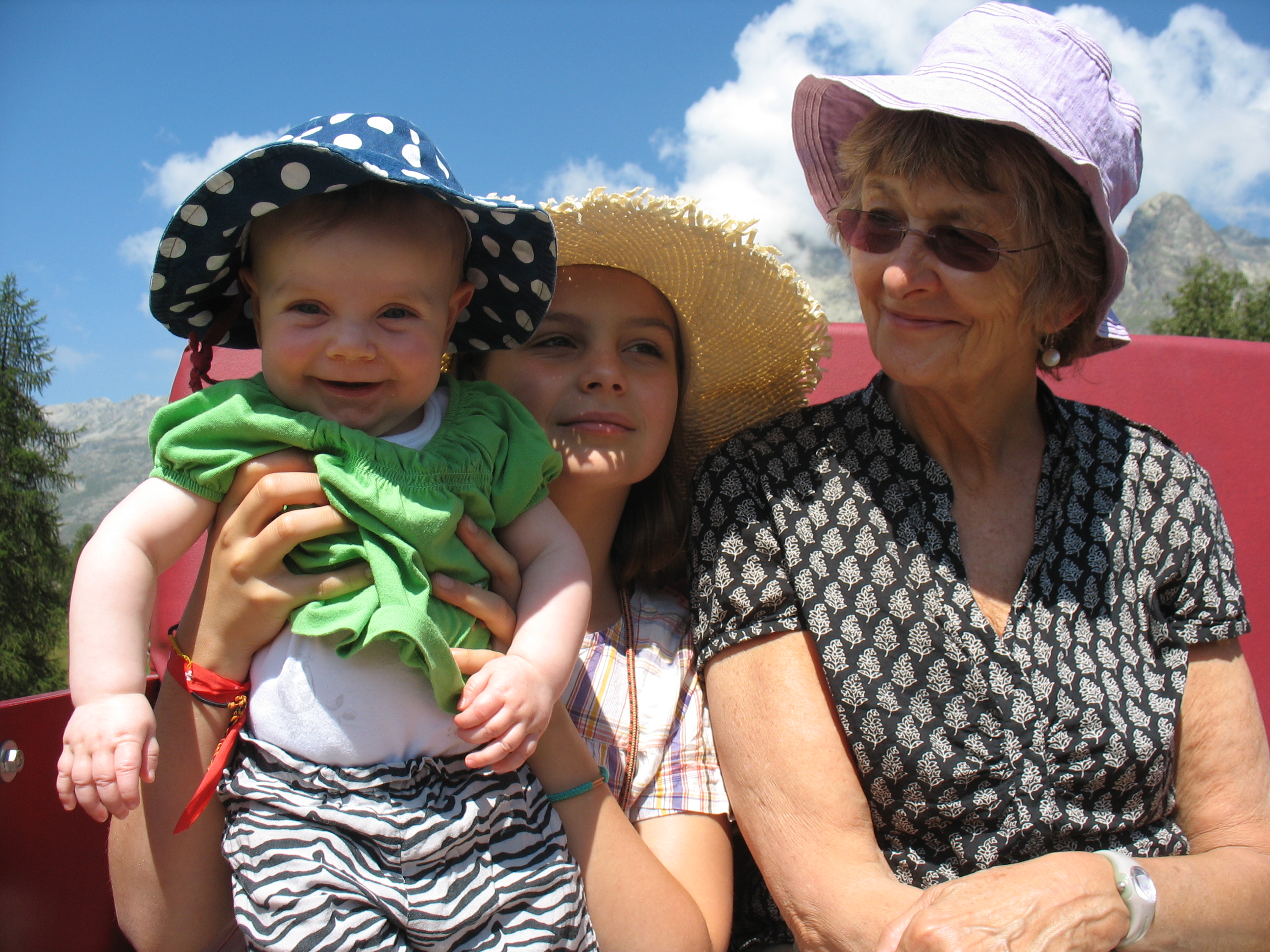Some quotes from Ann Oakley's writings on...
Bodies
Childbirth and motherhood
The Family
Feminism
Housework
Imagining the future
Men
Relationships between men and women
Sex and gender
Social science
'A woman of my age (in her sixties) lives in a body which is the focus of institutionalised concern from many experts. We regularly receive 'invitations' to have out breasts squeezed between the blades of mammography machines, our uterine cervices scraped, and the state of our bones quantified. We have a lifetime of such offers, all made on the basis that we'll live longer and better with them than without them. But will we?...The main function of medical screening isn't to prevent disease, but to change identities - to produce patients. 'Becoming a patient is not a trivial matter. It has profound health, social, psychological and economic consequences.'
Fracture, 2007, p101.
'Old age is such a dismal subject, as Simone de Beauvoir discovered when she told people she was writing a book about it. It's boring, like housework. Most of those who do housework are women, and old age is also a female speciality; in these respects, the lives of women are dismally invisible.'
Fracture, 2007, p107.
'Most of my own sense of being old(er)...[is] about simply having lived quite a long time. I'm aware of my body's history, and also of my own. In old age, embodied knowledge represents the accumulation of a lifetime of self-understanding. Embodied knowledge encompasses people's historical experience of their bodies. Wrinkles, for example, are the result of facial activity. The more you smile and frown, and weep and laugh, the more your face is a map of all you've been through.''
Fracture, 2007, p112.
Go to top
Childbirth and motherhood
'Two paradigms of women jostle for first place in the medical model of reproduction. In the first, women are seen not only as passive patients but in a mechanistic way as manipulable reproductive machines. In the second, the mechanical model is replaced by an appeal to notions of the biologically determined "feminine female"'.
Women Confined, 1980, p34.
'...first-time mothers... discover that it is not just a case of having the baby and carrying on as though nothing had happened: something has happened, a historical event... producing a baby is re-producing, looking differently at one's body, one's identity, one's way of living... And in becoming a mother a woman takes her place among all women, conscious in a new way of the divisions between men and women... Motherhood is a handicap but also a strength; a trial and an error; an achievement and a prize.'
Becoming a Mother, 1979, p308.
'Technologies alter the relationship between nature and culture, and this is especially true of motherhood, where the overall effect is to control and commodify women's bodies.'
The Ann Oakley Reader, 2005, p119.
'One major consequence of childbirth for women... is termed "postnatal depression". Despite its appearance, this is a deeply unscientific label: it lacks any clear definition, aetiology or treatment, and has no apparent link to the hormonal mechanisms which are often said to produce it.'
The Ann Oakley Reader, 2005, p120.
Go to top

'Women's domesticity is a circle of learnt deprivation and induced subjugation: a circle decisively centred on family life.'
Housewife, 1974, p233.
'The family's gift to women is a direct apprenticeship in the housework role. For this reason, the abolition of the housewife role requires the abolition of the family, and the substitution of more open and variable relationships... people living together in a chosen and freely perpetuated intimacy, in a space that allows each to breathe and find her or his own separate destiny.'
Housewife, 1974, p236.
'Male-dominated culture has designated as female all labours of emotional connectedness... The principal mode of developing this sensitivity in women is the gender-differentiated nuclear family. Women mother. Daughters are transformed into mothers. An autonomous sense of self... does not need to develop. Women's sense of identity is thus dangerously bound up from early childhood with the identities of others. Not so for men, who as little boys look into their mothers' faces and see what they learn is not a reflection of their own... So if it isn't in love that women are lost, it's in the family. The tension between the interests of the family and the interests of women as individuals has been rising for some two centuries. It is not possible for these interests to be reconciled.'
Taking it Like a Woman, 1984, p201.
Go to top
'When I say I'm a feminist what do I mean? I mean that I believe that women are an oppressed social group, a group of people sharing a common exclusion from full participation in certain key social institutions (and being over-represented in others). Women in Britain are still subject to the awful soul-destroying tyranny of being told the meaning of their lives by others in terms which are not theirs.'
Taking it Like a Woman, 1984, p186.
'All women are feminists at heart. In their psychology lies a great love for women as a class. But it's interred beneath a great mound of rubbish.'
Taking it Like a Woman, 1984, p197.
Go to top
'Despite a reduction of gender differences in the occupational world in recent years, one occupational role remains entirely feminine: the role of housewife. No law bans men from this occupation, but the weight of economic, social and psychological pressures is against their entry to it. The equation of femaleness with housewifery is basic to the structure of modern society...
The Sociology of Housework, 1974, p.29.
'Housework is work directly opposed to the possibility of human self-actualization.'
Housewife, 1974, p222.

'...it has become acceptable for a husband to "help" his wife; provided he doesn't help too much, it is regarded as probable that his masculinity will survive, The concept of "help" here is obviously political...'
Becoming a Mother, 1979, p211.
'Both men and women may value men's involvement in the family, but this doesn't guarantee a shared division of labour... Public policy has kept the domestic division of labour at home where it belongs...'
Gender on Planet Earth, 2002, p100.
'Homes aren't havens for the people who work in them... The material effects of housework... seem like bragging or nagging when housework doesn't really exist as work. It's difficult then to see that public health... begins at home, and that most of the housework women do is primary public health work - an effective way of improving the health of populations. Whenever women's accounts of their household work are studied, what stands out is this material experience of labour and responsibility: the "compulsory" nature of housework and childcare, the unremitting obligation to do it or see that it gets done, the physical effects of heavy manual labour, the psychological effects of social isolation, fragmentation, and trying to stretch scarce resources.'
Gender on Planet Earth, 2002, pp100-1.
'Time-budget studies show that women's housework has decreased and men's has increased somewhat with the growth in women's employment, but men's greater efforts do not fill the gap left by women doing less... Men create more housework than they do and, in many households, children do as much housework as men... Even in supposed paradises of gender equality, such as Sweden, 87% of couples do not share housework.'
The Ann Oakley Reader, 2005, p56.
Go to top
'To liberate society from gender- and class-inequality would be a transformation that is almost beyond the bounds of imagination...It is...essential that the whole balance between work and non-work life should be re-thought..'
Women Confined, 1980, pp299-300.
'We need a new world order which values all human beings, the right to satisfy all basic human needs, ecological tolerance and a respect for the future. The domination of nature and of women, the eating of animals, the economic goal of unlimited growth (for some), monopolistic corporate power and the pursuit of technology for its own sake are the same side of the same coin. A new relationship with nature and respect for Mother Earth are needed to reverse these malignancies, but these won't come about until we've untangled the links between culture, masculinity and violence against all forms of life.'
Gender on Planet Earth, 2002, pp152-3.
Go to top
'Masculinity - a set of images, values, interests and activities held important to the successful achievement of male adulthood - isn't a biologically given condition. Sociobiological explanations of masculine aggression and crime don't work. because these aren't universal, because different cultures sanction or proscribe different patterns of behaviour, and because male violence is systematically linked to sexual and economic power relations. Violence, crime, sport and war are all contexts for making masculinity happen.'
Gender on Planet Earth, 2002, p37.
'The state is a masculine institution: men hold most of the top positions in government and its associated agencies...'
Gender on Planet Earth, 2002, p45.
'We live in a toxic world which poses a major threat to public and personal health. ...most environmental damage happens because of the earth's domination by the Western lifestyle, which depends on constantly rising levels of consumption, an addiction to technology, and meat as the basis of the human diet... Some people are far more culpable than others. The most culpable are men and male-dominated transnational corporations. The major victims are the poor, women and children, and the populations of Third World countries. The script of female nature being tortured by male culture is also directly inscribed on women's bodies in the medical management of that most 'natural' of all activities, childbirth.'
Gender on Planet Earth, 2002, p127.
'The desecration of the earth is the result of a specific masculine consciousness that devalues women's experiences... The cause and consequence of the rape of Mother Earth is a global pattern of growing inequalities between the First World and the Third, between classes and ethnicities and between men and women.''
Gender on Planet Earth, 2002, p152.
Go to top
'...the cultural expectation of great intimacy between men and women clashes with the very different... socializations of the sexes. Men and women are reared primarily as masculine and feminine individuals, the one to notions of potency, public-mindedness and emotional invulnerability, the other to standards of fragility, domesticity and emotional hypersensitivity. ...it is hard to see how they can hope to be one another's greatest friends.'
Subject Women, 1981, p245.
Go to top
'Most of the debate about sex differences is angled at proving that women are or are not different from men, rather than proving that men are or are not different from women. If this fact needs explaining, it is enough to point out that the bias of our culture is still patriarchal...'
Sex, Gender and Society, 1972, p208.
'While our society is organised around the differences rather than the similarities between the sexes, these two extremes of masculinity and femininity will recur, so apparently confirming the belief that they come from a biological cause. Whatever biological cause there is in reality, however influential or insubstantial it may be, thus ... becomes increasingly a rationalisation of what is, in fact, only prejudice.'
Sex, Gender and Society, 1972, p210.

'...women and... men... are jointly locked in a culture which distorts the possibilities of humanness as an ethical project. Women are outsiders in a system which often appears to them to come from another planet. And so, indeed, it has been brought to them by men, whose alienation from the experiences of others is often so complete that they can't even see their own will to power. These dual positions of aliens and outsides are the creation of a gendered division of labour inherited from the past. But that past... lives in the present through men's understandable reluctance to give up their ownership and commodification of the world.'
Gender on Planet Earth, 2002, p3.
'Today's pronounced backlash against feminism reinstates a revamped sociobiology and an obsessional chase for genes that explain everything as a major strategy for closing the door on sociological understandings of difference.'
The Ann Oakley Reader, 2005, p4.
Go to top
'...sociology has been in its modes of thinking, methodologies, conceptual organization and subjects of inquiry, one of the most sexist of academic disciplines... the male's social world has constituted the world of male sociology.'
Women Confined, 1980, p71.
'It is hard to remember today what the world was like before women's studies. When I went to university almost thirty years ago, there were no women's studies courses. I remember studying economic and political theory, moral philosophy and sociology, with a sense of inchoate puzzlement about the representations of humankind embedded in these subjects. In economics, for example, there was Rational Man, a bit like Piltdown Man, or some other archaeological relic. Next to him... was The Housewife, who spent her entire life in shops choosing what to buy and being responsible for the shape of supply and demand curves... The sexist bogs of philosophy were equally oppressive. But the Platonic ideal of philosophy as an activity that must rise above the ordinary mundanities of life at least gave me the answer to the question about what The Housewife was doing... She was out there consuming commodities, so that he could sit and think and devise theories about the world that would not work.'
Essays on Women, Medicine and Health , 1993, pp206-7.
'...the automatically laudatory designation of qualitative methods within feminist social science and other 'anti-positivist' sociologies is a cause for concern, since such methods are no guarantee of equal power relations between the researcher and the researched.'
The Ann Oakley Reader, 2005, p187.
'Universities are not comfortable sites of feminist struggle, and they remain relatively inhospitable to women and other outsiders. The fit between what is regarded as 'cutting edge' research and scholarship, on the one hand, and the products of masculine social science, on the other, remains uncomfortably close.'
The Ann Oakley Reader, 2005, p188.
Go to top




 '...women and... men... are jointly locked in a culture which distorts the possibilities of humanness as an ethical project. Women are outsiders in a system which often appears to them to come from another planet. And so, indeed, it has been brought to them by men, whose alienation from the experiences of others is often so complete that they can't even see their own will to power. These dual positions of aliens and outsides are the creation of a gendered division of labour inherited from the past. But that past... lives in the present through men's understandable reluctance to give up their ownership and commodification of the world.' Gender on Planet Earth, 2002, p3.
'...women and... men... are jointly locked in a culture which distorts the possibilities of humanness as an ethical project. Women are outsiders in a system which often appears to them to come from another planet. And so, indeed, it has been brought to them by men, whose alienation from the experiences of others is often so complete that they can't even see their own will to power. These dual positions of aliens and outsides are the creation of a gendered division of labour inherited from the past. But that past... lives in the present through men's understandable reluctance to give up their ownership and commodification of the world.' Gender on Planet Earth, 2002, p3.